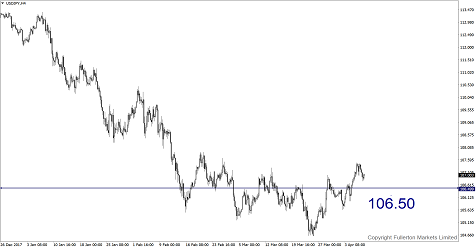New Zealand may get benefit from the US-China trade tension, long NZD/USD?
Any sustained escalation of tension would lead to volatility in financial markets and weigh on business and investment decisions.
Forget about nonfarm payrolls and Fed for now. Financial markets have become a battlefield as both China and the US seek to strengthen their political hands. What does that mean? It simply suggests that it could be wise for investors to stay away from equities and move their portfolio into safe-havens such as US Treasuries, Japanese yen, or gold.
Let’s see the latest reaction from both side:
United States:
- Larry Kudlow, the new head of Mr. Trump’s National Economic Council, conceded that no substantive negotiations had been held in the dispute over China’s intellectual property regime, but insisted they remained a possibility. He said that while he hoped for a negotiated solution, Mr. Trump’s threatened tariffs were not simply a negotiating ploy.
- “Blame China. Not Trump.” Steven Mnuchin, the US Treasury secretary, conceded in an interview on CNBC that “there is the potential of a trade war”.
China:
- Ministry of Commerce spokesman last Friday said China was prepared to adopt comprehensive countermeasures in its dispute with the US, saying China doesn’t want a trade war, but they are not afraid to fight a trade war.
- Adding: “We will accompany until the end, we will not hesitate in paying any price.”
While investors struggle to work out the ultimate effects of a possible trade war, they may have to get used to the volatility in the financial markets as part of the negotiation process. When equity investors cheered Trump’s corporate tax reform into law late last year, the threat that he will target China as part of a plan to return jobs to the US is potentially a new headwind for the S&P 500. This is because his planned tariffs on Chinese goods were very much aimed at the US public once China confirms its retaliation, like the threat to impose a levy on soybeans. With US soybean exports worth $14 billion annually, and China as the biggest US export market, soybean farming is concentrated in states that helped swing the 2016 US election such as Iowa, Minnesota, and Ohio. In other words, how the business unions in these States were to comment and react Trump’s tariff rules may also have a meaningful impact on Trump’s final decision.
The analyst can argue that direct impact of the tariffs on the US and China would be manageable. However, any sustained escalation in tension would lead to volatility in financial markets and weigh on business and investment decisions, this will slow the global outputs.
A graph below is a WeChat searching function, and it shows that public searching “US-China Trade War” has substantially jumped for past few days. This may reflect that a possible escalation of the development looks high possible.
NOTE: WeChat’s active user numbers are around 1 billion around the world.
Numbers of public searching “US-China Trade War”
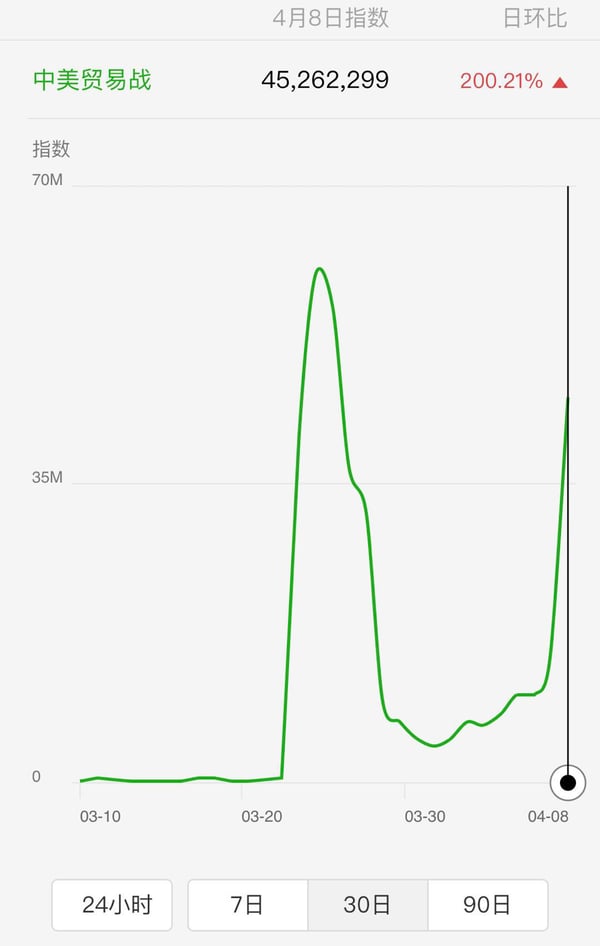
Source: WeChat
Our Picks
NZD/USD – Slightly bullish.
Possible increases in China’s tariffs on US agriculture products may prompt Chinese producers to looks for NZ’s imports as a substitute which may benefit the NZ economy. NZD/USD may rise towards 0.7355 in coming weeks.
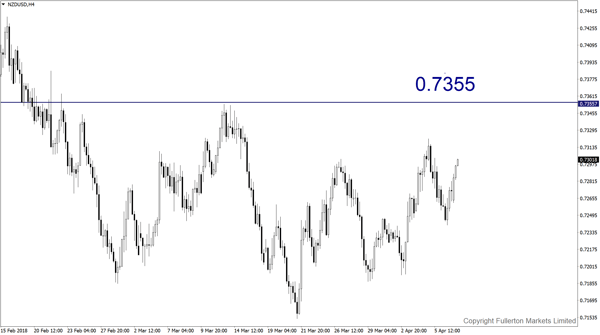
USD/JPY – Slightly bearish.
Ongoing trade tension would continue to pressure this pair. Price may move towards 106.50 this week.
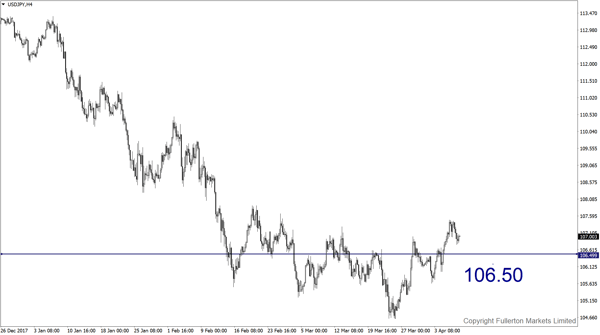
XAU/USD (Gold) – Slightly bullish.
We expect the price to rise towards 1340 this week.
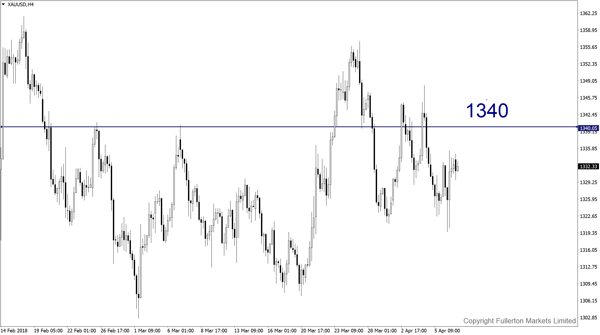
Fullerton Markets Research Team
Your Committed Trading Partner


